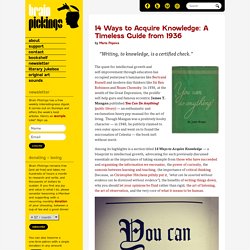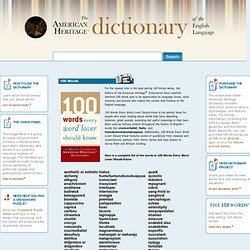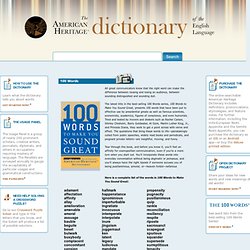

Archaic words. What do you call a group of ...? Feeding the Mind: Lewis Carroll’s Rules for a Fine Information Diet and Healthy Intellectual Digestion. By Maria Popova “Mental gluttony, or over-reading, is a dangerous propensity, tending to weakness of digestive power, and in some cases to loss of appetite.” Included in the altogether fantastic Alice in Wonderland Cookbook: A Culinary Diversion ( public library ) — which also gave us some delicious recipes inspired by the Carroll classic and the author’s tips on dining etiquette — is Carroll’s essay titled Feeding the Mind , originally written in 1907, which enlists the power of metaphor to make a prescient case for minding our intellectual diet and aims to make you “see that it is one’s duty no less than one’s interest to ‘read, mark, learn, and inwardly digest’ the good books that fall in your way.”
He begins: Breakfast, dinner, tea; in extreme cases, breakfast, luncheon, dinner, tea, supper, and a glass of something hot at bedtime. What care we take about feeding the lucky body! First, then, we should set ourselves to provide for our mind its proper kind of food. 14 Ways to Acquire Knowledge: A Timeless Guide from 1936. Consider the knowledge you already have — the things you really know you can do.

They are the things you have done over and over; practiced them so often that they became second nature. Every normal person knows how to walk and talk. But he could never have acquired this knowledge without practice. For the young child can’t do the things that are easy to older people without first doing them over and over and over. Most of us quit on the first or second attempt. Any normal child, at about the age of three or four, reaches the asking period, the time when that quickly developing brain is most eager for knowledge. How to Learn: Lewis Carroll’s Four Rules for Digesting Information and Mastering the Art of Reading. Are You a Spermologer? Find Out With 18 Obsolete Words That Never Should Have Gone Out of Style.
100 Words Every Word Lover Should Know. 1.

Teams shall consist of two or three members, one of whom will be designated captain and responsible for delivering the final spelling of the word. 2. The judge is in complete control of the spelling bee. His or her decision shall be final on all questions. 3. 4. 5. 6. 7. 8. 9. 100 Words to Make You Sound Smart. 100 Words to Make You Sound Great. All great communicators know that the right word can make the difference between rousing and losing an audience, between sounding distinguished and sounding dull.

The latest title in the best-selling 100 Words series, 100 Words to Make You Sound Great, presents 100 words that have been put to effective use by presidential greats as well as famous scientists, economists, academics, figures of conscience, and even humorists. Tried and tested by movers and shakers such as Rachel Carson, Shirley Chisholm, Barry Goldwater, Al Gore, Martin Luther King, Jr., and Princess Diana, they work to get a point across with verve and effect. The quotations that bring these words to life—painstakingly culled from public speeches, widely read books and periodicals, and poignant private letters—are insightful, moving, and funny.
100 Words For Lovers. 100 More Words Every High School Graduate Should Know. 100 Words Every Word Lover Should Know. What is the longest English word? A book by any other name. Following on from our post about the etymology of the word book, we’ve delved into the Historical Thesaurus of the Oxford English Dictionary (OED) to find different words for book and various types of book through time… they’re in the word cloud above, and the list below. anagraph – a record or register of events. anagraphy – an anagraph. biblet – a book, or a library.

Bildungsroman – a novel that has as its main theme the formative years or spiritual education of one person. codex – a manuscript volume: e.g. one of the ancient manuscripts of the Scriptures, or of the ancient classics. curdler – a story, etc., that (supposedly) curdles the blood. curiosa – curiosities, oddities; specifically erotic or pornographic books. diatribe – a critical dissertation. diegesis – the narrative presented by a cinematographic film or literary work. disquisition – a treatise or discourse in which a subject is investigated and discussed, or the results of investigation set forth at some length. A Master List of 1,000 Free Courses From Top Universities: 30,000 Hours of Audio/Video Lectures -